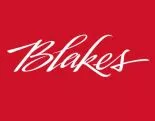- with Senior Company Executives, HR and Inhouse Counsel
- with readers working within the Insurance and Healthcare industries
Copyright 2008, Blake, Cassels & Graydon LLP
Originally published in Blakes Bulletin on Competition Law May, 2008
On April 25, 2008, the Bureau published its Information Bulletin on Sections 15 and 16 of the Competition Act (the Bulletin). The publication of the Bulletin followed a public consultation on a draft version of the document in 2007. The Bulletin outlines the Bureau's practices and policies regarding the search and seizure provisions of the Competition Act.
Under section 15 of the Competition Act, the Commissioner of Competition (the Commissioner) may apply ex parte to a judge of a superior or county court of a province to obtain a warrant to search premises and seize any records or things. In order to obtain a search warrant, the Commissioner must satisfy the court that there exists a basis for an inquiry under the Competition Act and that there are reasonable grounds to believe that the relevant evidence is on the premises to be searched. Section 16 of the Competition Act further allows for computer searches and the reproduction and seizure of any records or data found.
The Bulletin states that executing a search warrant, the so-called "dawn raid", is one of the Bureau's most effective investigative tools. The Bulletin provides an overview of some of the issues that may arise prior to, during, and following the execution of a search warrant, as follows:
- When applying for a search warrant, the Commissioner will
seek a sealing order where there are sufficient grounds to
believe that disclosure would subvert the ends of justice or
unduly impair its proper administration.
- While the Competition Act provides that a search
warrant may be executed between 6:00 a.m. and 9:00 p.m., in
general, a search is conducted during normal business
hours.
- The "leader" of the team conducting the search
may accommodate a request to delay a search for a reasonable
period of time until the arrival of a senior corporate
official and/or legal counsel.
- Where there is reason to believe that privileged records
are located in certain areas of the premises to be searched,
the search team will avoid searching those areas without
first providing legal counsel with the opportunity to review
the records for solicitor-client privilege claims.
- Members of the search team will speak to persons found on
the premises in order to facilitate the search process.
However, in situations where an individual is considered a
target of an inquiry, that person will be cautioned to ensure
that he or she is aware of his or her legal rights.
- Requests for the copying of essential work records are
normally granted by the Commissioner.
- If during the execution of a search warrant, the search
team comes across records indicating evidence of a new
violation of the Competition Act, the team may seize
records not described in the search warrant if they are in
plain view or if there is reason to believe the records might
be destroyed during the time it would take to obtain a new
search warrant.
- Attempts to impede and/or prevent the execution of a
search warrant or to remove or destroy records subject to a
search warrant are offences under the Competition
Act and will be taken very seriously by the
Commissioner.
- Generally, true copies of any records seized pursuant to
a search warrant will be made by the Bureau and the originals
will be returned to the person from whom they were
seized.
The content of this article is intended to provide a general guide to the subject matter. Specialist advice should be sought about your specific circumstances.


